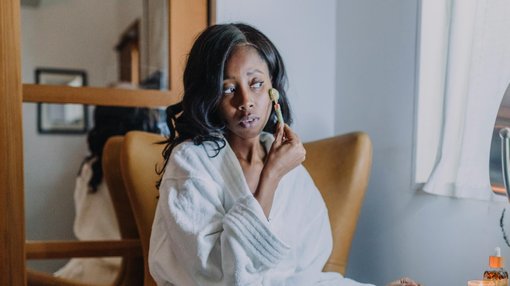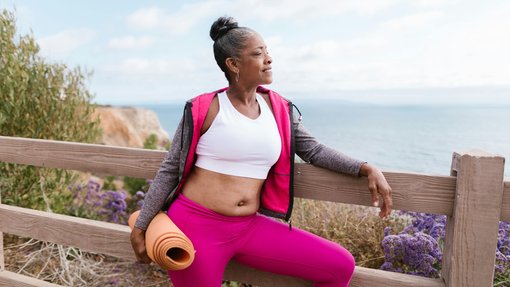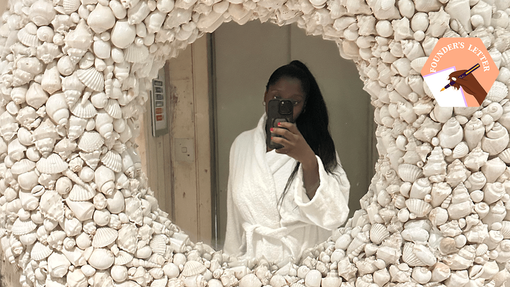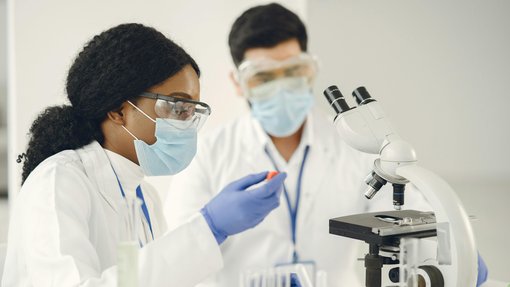“So, what are your deal breakers?”
It’s a question I always try to ask pretty early on if I’m getting to know someone for the purpose of dating. When he’s told me his, I share mine. It eliminates the possibility of unpleasant surprises at a later stage when I’m already headfirst in my feelings. I remember once ending a relationship because my partner didn’t have any intentions of moving to London and I had no intentions of moving out of London. Awkward.
It’s helpful to know your deal breakers. Common ones are about religion, politics or children. One of mine is if he has the sickle cell trait. And that’s because I have it too.
According to the Sickle Cell Society, one in 76 babies born in the UK have the sickle cell trait. Having the trait – being a carrier – means that you can pass the trait on to any child you have. But if the child’s other parent has the sickle cell trait as well, this could result in sickle cell disease.
The odds if both parents have the sickle cell trait are as follows: for each child you have there is a one in four chance the child will have no trait, a two in four chance the child will have the trait (i.e. 50:50) and a one in four chance the child will have sickle cell disease.
If white people suffered from sickle cell then I think we’d understand a lot more about it right now.
While it might seem extreme to some, I came to the decision a couple of years ago that if a potential partner was a carrier it would be a deal breaker, so now it’s something I bring up even before the first date. Personally, I’m just not prepared to take the risk of having a child who could be living with a serious health condition that I could have prevented.
I don’t think it needs to be a deal breaker for everybody, but I definitely think it’s something worth discussing. I spoke to Dr Shade Henry, a GP from south London, to learn more about the inherited condition.
“Red blood cells are normally a certain shape,” she explains. “But in people who have sickle cell, those cells are just like the name, shaped like a sickle. This can result in painful episodes, called crises. [A crisis] is when the sickle-shaped cells are blocking some of the smaller blood vessels, and it causes a lot of pain in the parts of the body not getting any blood supply. People with sickle cell often have anaemia, which results in tiredness, weakness and they are more susceptible to specific types of infections.
“As a GP, one of the main things I do with sickle cell patients is help control pain, give pain relief and also pick up on when something more serious is happening. For example if someone is presenting with a very severe headache or weakness on one side, I might worry that it’s something like a stroke and I’d refer them to hospital.”
Sickle cell disease is a condition that mostly affects people from Caribbean or African backgrounds. At present, the only cure is a bone marrow transplant but this is uncommon. Treatment is mostly pain management and preventing complications.
Surprisingly, Shade tells me, “It’s the most common severe genetic disease in the UK.” And yet, we both find it’s something that isn’t widely known about.
“Medical racism is a thing,” Shade says. “If white people suffered from sickle cell then I think we’d understand a lot more about it right now. Compared to something like cystic fibrosis, a lot less money has been put into research for sickle cell and there’s a lot of stigma attached to it. Within the medical profession, there can be some quite historic stereotypes such as sickle cell patients being seen as misusing or seeking a lot of pain medication.
“There’s a lack of awareness in our communities as well of how serious it is, or how it’s passed on. So a lot of people don’t know whether they’re carriers or not, and it’s not something people ask when dating. I think we should try and normalise that, because if you have sickle cell trait it’s nothing to be ashamed of, but it’s important to know about.”
It’s also important to know that there are options for family planning with two carriers – one of them being IVF with preimplantation genetic diagnosis. I had always thought that was an expensive route to go down and I wasn’t keen, but Shade tells me, “NHS funding is available for couples who have at least a ten per cent chance of having a child with a specific condition.
“With IVF, a woman takes medication to stimulate her eggs, then the eggs are taken to be fertilised with her partner’s sperm and grown in a lab. Doctors can test whether the embryo will have sickle cell, and you can make a decision before implanting the embryo and carrying on with the pregnancy. Obviously people have different ethical and religious views around IVF and embryos and what constitutes life, so that’s for every person to make their own decision on. But people aren’t always aware that they do have that option.”
I ask Shade what her advice would be for people with sickle cell trait who are dating.
“It’s something you have to think through ethically,” she says. “Ask yourself, ‘If I want to conceive naturally but get pregnant with another carrier, would I be comfortable having a termination? Am I comfortable with IVF and not using an embryo if it does have sickle cell?’ Then you have to be prepared to have those conversations with a potential partner. I don’t want to be blasé about IVF either and say it’s guaranteed to work.
“To everyone, I’d say know your status. Don’t be scared to know, because once you know you can manage it. Find out by speaking to your GP, it might already be on record, or you can get a blood test. Also be hopeful. We are learning new things every day and getting better at management – having sickle disease isn’t a death sentence.”
Shade also reminds me that people in medicine talk about ‘whole person care’; health isn’t just about physicality – “It’s about your emotional, spiritual, mental wellbeing. Physicality is only one part of life.”
Having sickle cell disease is a physical health problem but it does not stop people from living worthy, whole, happy and full lives. But is it something we want to prevent from spreading? My chat with Shade has definitely made me think. It’s an issue that raises questions – ones I think we must keep asking ourselves and each other.
Header image by Prince Akachi
More stories about black women's health


Dr Michelle Nyangereka
Could Cannabis Be The Key To An Easier Menopause For Black Women?
Wednesday 11 December 2024 8:00 AM

Tobi Oredein
Founder's Letter: Not Waiting For New Year’s To Prioritise My Health
Sunday 8 December 2024 11:59 PM

C. I. Atumah
Why Are Women’s Health Issues Under-Funded And Under-Researched?
Wednesday 13 November 2024 8:00 AM